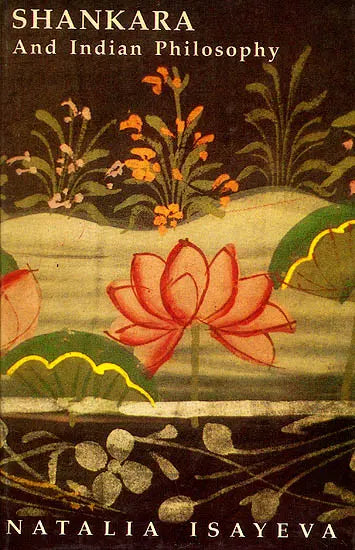Sankara and Indian Philosophy: No. 1 (Monumenta Indica S.)
Sankara and Indian Philosophy: No. 1 (Monumenta Indica S.) is backordered and will ship as soon as it is back in stock.
Couldn't load pickup availability
Genuine Products Guarantee
Genuine Products Guarantee
We guarantee 100% genuine products, and if proven otherwise, we will compensate you with 10 times the product's cost.
Delivery and Shipping
Delivery and Shipping
Products are generally ready for dispatch within 1 day and typically reach you in 3 to 5 days.
Book Details:
-
Author: Natalia Isayeva
-
Publisher: Sri Satguru Publications
-
Language: English
-
Edition: 1993
-
ISBN: 9788170303732
-
Pages: 285
-
Cover: Hardcover
-
Dimensions: 23 cm x 14 cm
-
Weight: 440 gm
About the Book:
This book offers a comprehensive study of Shankara's Advaita-Vedanta, providing readers with an in-depth analysis of his philosophical system. According to Advaita-Vedanta, God, or Brahman, is identical to the inner self, Atman, of each person, while the material world is merely an illusion (maya). Shankara’s philosophy posits two primary levels of existence: the higher knowledge, which is Brahman itself, and the relative, limited knowledge that constitutes the fabric of the universe. The ultimate goal of human life, according to Shankara, is to realize this absolute unity and the reality of Brahman within one’s own being.
Natalia Isayeva's work is a landmark in Shankara studies. It stands as one of the few works in the last fifty years to explore Shankara’s philosophy in the broader context of Indian philosophical traditions. The book compares Shankara’s thought with those of other systems, such as Lokayata, Sarvastivada, Mimamsa, and Vishishthadvaita, providing valuable insights into the depth and subtleties of Advaita-Vedanta. The author examines Shankara’s thought both in isolation and in relation to these other schools of philosophy, offering a thorough exploration of the intellectual encounter among India's diverse philosophical traditions.
Through this exploration, Isayeva sheds light on Shankara’s system and how it emerged as a major force in the history of Indian philosophy, particularly in terms of his intellectual courage and the profound implications of his non-dualism. The book is organized clearly and coherently, analyzing Shankara's original texts and placing them within their larger historical and philosophical context.





